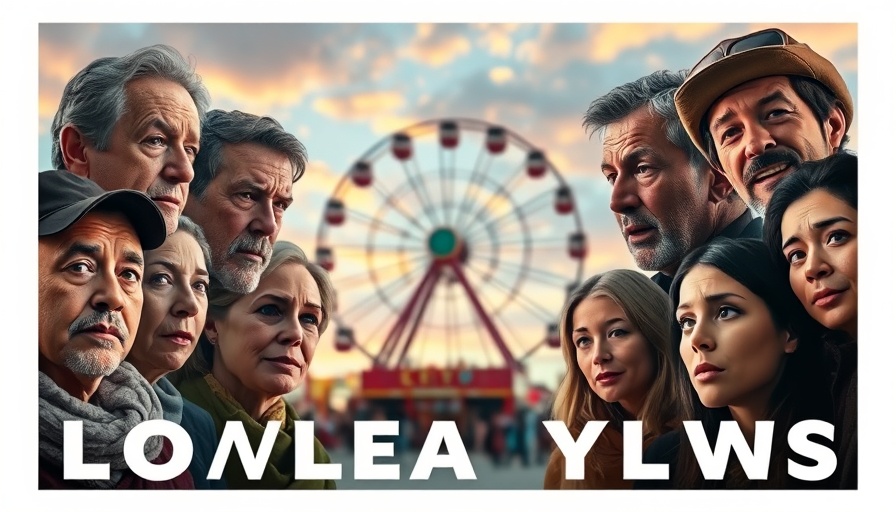
Is Coachella a Fashion Statement or a Cultural Commentary?
Coachella serves as a cultural melting pot where young generations flock to indulge in trends, self-expression, and celebrity encounters. However, recent observations draw attention to a question that stirs debate: has Coachella become a platform for elite vanity rather than a genuine celebration of music and community? This is the sentiment echoed by conservative commentator Ben Shapiro, who took to task the festival’s trendiest outfits and the political presence intertwined with celebrity culture.
In Ben Shapiro Reacts to INSANE Coachella Outfits and Bernie Sanders' Cringe Speech, the discussion dives into the cultural commentary of modern festivals, prompting us to evaluate deeper societal implications.
The Outfits: A Reflection of Our Values?
Shapiro’s reaction to the outrageous fashion choices at Coachella, from “the hooker look” of Paris Hilton to Julia Fox’s near-naked ensemble, presents a striking picture of modern society’s approach to self-expression. These avant-garde silhouettes arguably challenge societal norms about appearance and fashion, yet there’s an underlying critique about the superficiality involved. Are these statements of freedom, or do they highlight a darker culture of attention-seeking behaviors propelled by social media’s fertile ground? Perfectly trimmed outfits or sheer dresses come with hefty price tags, leading many to ponder if wealth truly equates to idealism in a festival space meant for the masses.
Coachella and Political Messaging: The Contrast
Interestingly, while the festival is buzzing with eclectic outfits, it is also graced by the presence of influential political figures like Bernie Sanders and Alexandria Ocasio-Cortez (AOC). Shapiro points out the irony of Bernie advocating for socialism at an event where attendees can easily spend $600 on tickets and extravagant outfits. This juxtaposition raises the question: can politicians authenticize their messages in the midst of such a lavish gathering? The crowd of influencers and social justice advocates at Coachella reflects contradictions that can blur the lines of genuine activism against the backdrop of wealth and fame.
The Rise of AOC: Signaling Future Change?
Shapiro notes AOC’s climb in the Democratic primary race, highlighting how her messaging resonates with youthful demographics attending events like Coachella. With polls indicating her rising popularity, it's crucial to recognize what this trend reveals about young voters’ motivations. Does her platform inspire a genuine commitment to change, or is it merely a facade similar to the artistic liberties on display at the festival? The future of American politics may very well hinge on the decisions of this emerging voter bloc, who are as drawn to celebrity as they are to policy.
Conservative Values in a Changing Landscape
For conservatives observing this cultural landscape, there is a pressing need to uphold traditional values amidst evolving societal norms. Shapiro's commentary serves a dual purpose: critiquing the extravagance of celebrity culture while prompting serious conversations about values, personal responsibility, and community engagement. Ultimately, understanding these dynamics is paramount for maintaining a balanced perspective as society navigates through such tumultuous waters.
The Call for Critical Engagement
As America grapples with ongoing changes in cultural and political arenas, it’s vital for individuals, particularly conservatives, to critically analyze these moments for what they represent. Engaging with polarizing figures, learning how to embrace both traditional values and modern challenges, and discussing the implications of trends observed at culturally significant events like Coachella can empower informed choices in the public sphere.
In reviewing Ben Shapiro’s reactions, one cannot help but recognize the unique interplay of culture, politics, and individual expression showcased at Coachella. This prompts the question: how can we reconcile our values with the rapidly changing narrative? In a world that sometimes feels divided, unity based on shared beliefs remains essential for forging a path forward.
So, let’s explore these themes further, touching not only on the headlines but also on how they inform our values and the future of our community.
 Add Row
Add Row  Add
Add 




Write A Comment